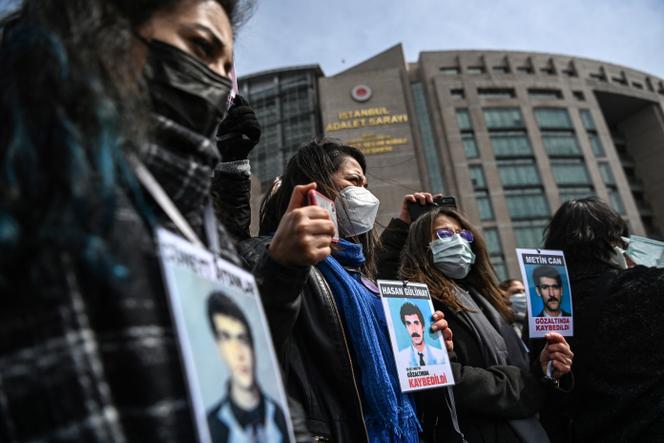

LETTER FROM ISTANBUL

The ritual is immutable and impressively solemn. Standing in front of the police barriers opposite Galatasaray High School, right in the middle of the frenetic pedestrian Istiklal Avenue, the mothers and families of people who have disappeared in Turkey stand with red carnations in hand during a long, accusing silence. They display the photos of their loved ones – of whom they have no news. They do this every Saturday, whatever the weather. They arrive at noon sharp and stay for half an hour, during which the memory of one or two missing persons is spoken aloud.
Hüsamettin Yaman, Saturday, May 4, a 22-year-old student whose family has had no news of him since he was taken into custody on May 5, 1992. Nurettin Yedigöl, on April 27, last seen by a witness in 1981 at the Gayrettepe torture center. Kadir Keremoglu, on April 20, a 75-year-old businessman abducted in the town of Van in a white Taurus car, registration 01 EA 600. A fortnight earlier, the memory of the great writer and stubborn critic of the regime, Sabahattin Ali, was remembered. His disappearance in 1948 still raises many questions today.
The list is long and the pile of portraits is almost overwhelming. In two weeks' time, on May 25, mothers and families will be demonstrating for the thousandth time. A thousand weekly gatherings to fight against oblivion and the erasure of their suffering, imposed by the state apparatus.
Launched in 1995, the rallies of the "Saturday Mothers," named after the Mothers of Plaza de Mayo movement in Buenos Aires, have been subject to interruptions, repression and arrests. After facing almost systematic police violence, they were forced to stop their actions for the first time in 1999. Families and relatives of the disappeared resumed their sit-ins 10 years later before they were once again banned in 2018, on the day of the 700th gathering, with a prosecutor even requesting three years' imprisonment against several participants for "illegal meeting."
After endless appeals, on November 3, a court eventually authorized the "Saturday Mothers" to gather once a week, with a limit of 10 people per gathering. "It was a real victory for us," said Sevda Arcan, a participant for almost 30 years, in a dignified, stubborn voice.
It all began with the Ocak family. Hasan Ocak, the son of Emine and Erdogan Ocak, was last seen on March 21, 1995, his wife's birthday. His disappearance took place in Istanbul, just over a week after the Gazi riots. During the four days of unrest, 23 people were killed and over 1,400 injured. Ocak had also demonstrated and was denounced to the authorities as an agent provocateur who had infiltrated the ranks of the protesters demonstrating against police violence.
You have 53.08% of this article left to read. The rest is for subscribers only.
